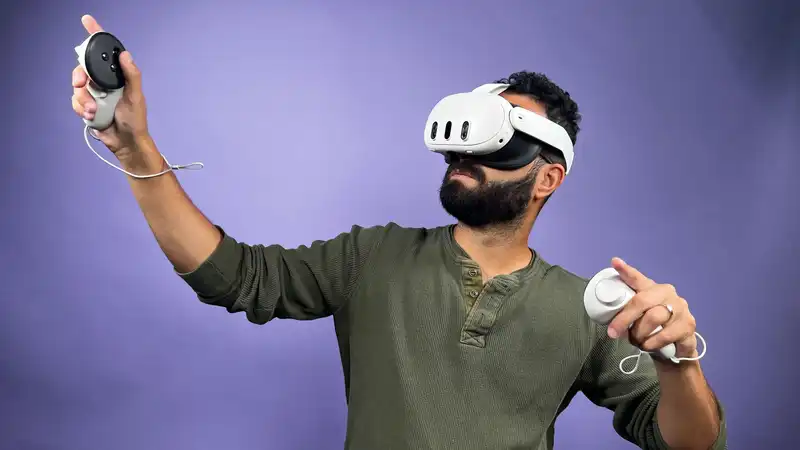Despite producing the best VR headset ever, the Quest 3, Meta's Reality Labs division is not making money: nearly $2 billion in revenue in 2023 has been completely swallowed up by $18 billion in spending, and Mark Zuckerberg's dream of a Metaverse is facing a $16 billion loss The company is in the midst of a major financial crisis. And the CEO has stated that for the foreseeable future, the losses will continue to worsen.
Meta's virtual reality woes are not surprising, as the company routinely posts its financial statements, which lay bare each division's revenues and operating income (or loss) for all to see; Yahoo Finance reports that it has spent nearly $50 billion in four years on The reason for the runaway spend is attributed not to technology development spending or cutting-edge research, but to a "lack of clear vision and mismanagement."
In March 2014, an almost unthinkable event occurred. Facebook, a social media platform that had long passed as cool and hip among kids, acquired virtual reality hardware company Oculus VR for $2 billion. At that point, Oculus VR had barely released its first product, the Oculus Rift headset, and some felt the acquisition went against the nature of Kickstarter, the crowdfunding project that paid for the hardware's development.
By the time Facebook took full control of Oculus VR and rebranded it as Facebook Reality Labs in 2020, the division had run out of cash and the Oculus Quest 2 headset (now known as Meta Quest 2) had generated just over $1 billion in annual sales due to the popularity of the Oculus Quest 2 headset (now known as the Meta Quest 2). Even by tech industry standards, this was an impressive sum.
In the same year, however, Reality Lab spent just under $8 billion, resulting in an overall operating loss for the division of $6.6 billion. This figure was even worse in 2021 ($10 billion loss), 2022 ($10.1 billion loss), and 2023 ($13.6 billion loss); Yahoo Finance estimates that Meta has already lost between $8.4 billion and $8.8 billion in 2024.
This time last year, Meta's chief financial officer, in his second-quarter financial report, warned, "For Reality Labs, we expect operating losses to increase significantly year over year due to continued product development efforts in augmented reality/virtual reality and investments to further expand our ecosystem." The company warned.
But how exactly will the company turn around from an operating loss many times its revenue? And even if Reality Labs does start to turn a profit next year, shareholders will not be happy with the amount of expenses it has incurred to get there.
According to a person interviewed by Yahoo Finance, Meta's Reality Labs is "reorganizing its chain of command . . every three to six months," and "a lack of understanding of the technology [often leads to] tension between new managers and existing staff."
Today, Meta has four AR/VR products on the market: the Quest 2, Quest 3, Quest Pro, and the Ray-Ban Meta smart glasses. However, it is claimed that in the past the company developed 24 hardware products on an 18-month schedule.
The fact that Meta spent an undisclosed amount of money developing its own chips for AR and VR products before deciding to switch to Qualcomm processors in 2021 probably won't anger engineers. And in the past few years, Meta has lost key figures in VR, including Oculus co-founder Nate Mitchell and legendary game developer John Carmack, who left the company in 2019.
It is unclear how much longer Meta is willing or able to sustain such losses, but the market does not seem overly concerned at this point, as the company's stock price is at about the same level it has been. Given how much Zuckerberg has invested in augmented reality (AR) and virtual, it is still unlikely that Meta will close or sell Reality Labs.
So don't be too surprised if Meta's excellent Quest 3 headset turns out to be the last VR bastion for Reality Labs.
.

Comments